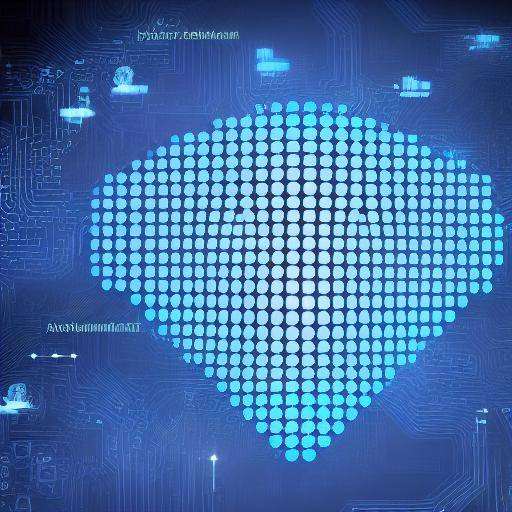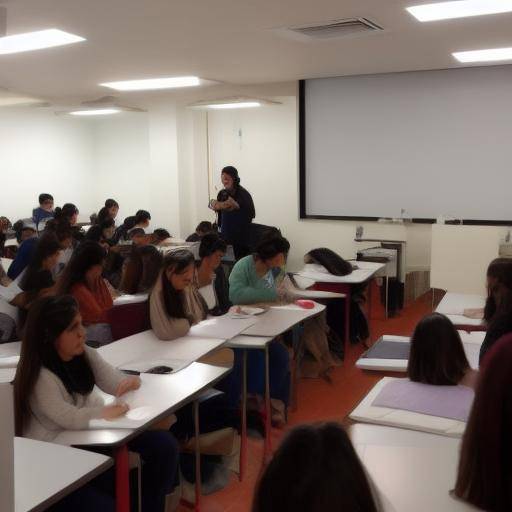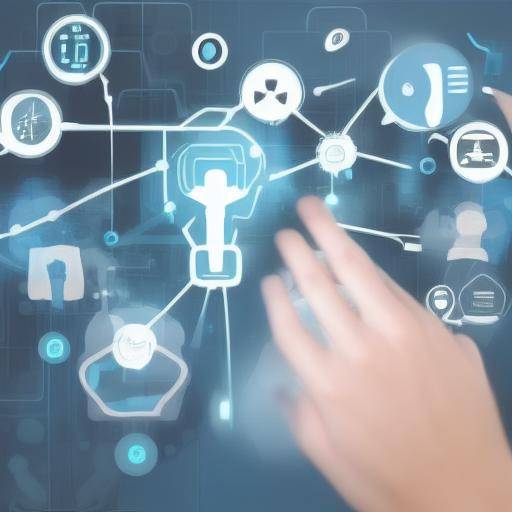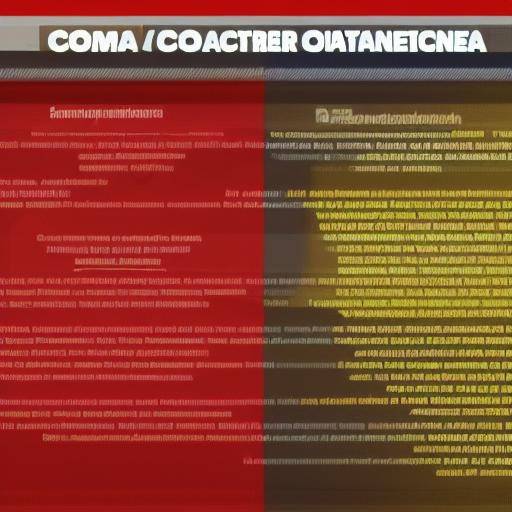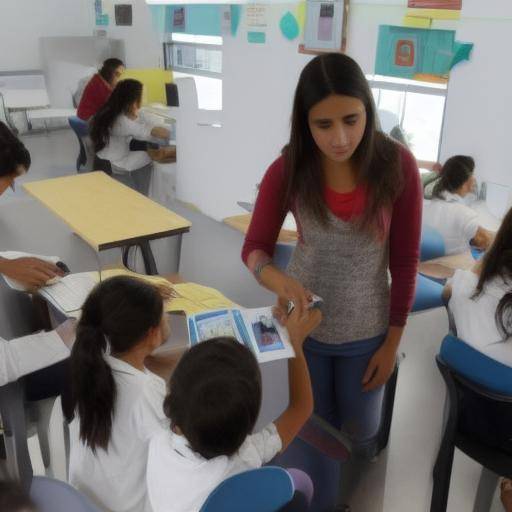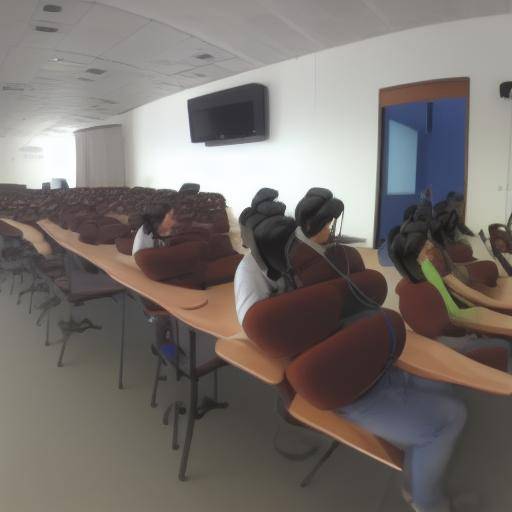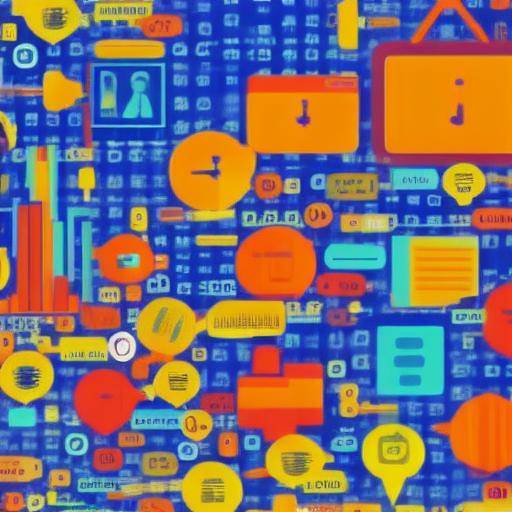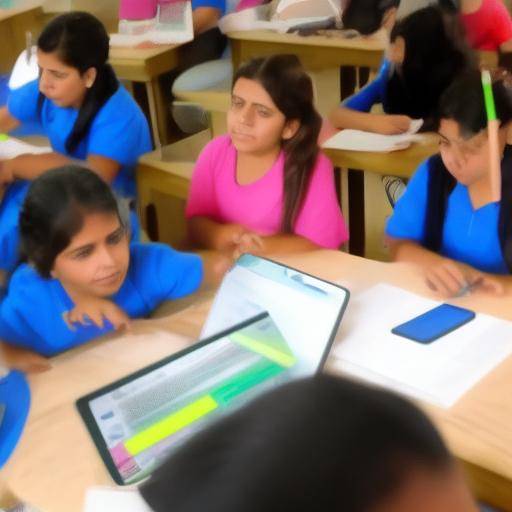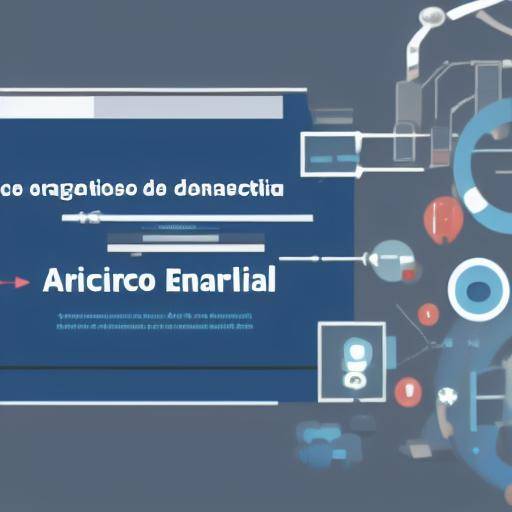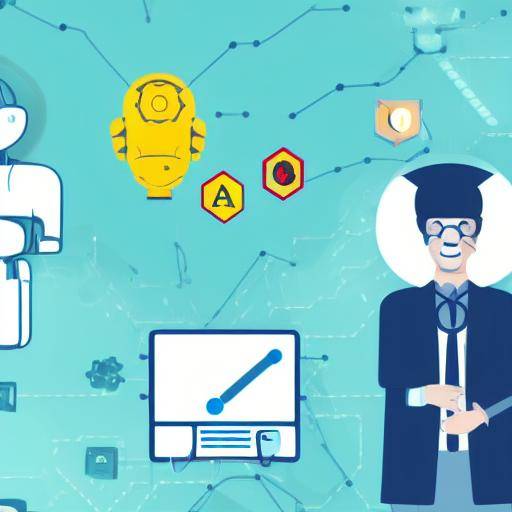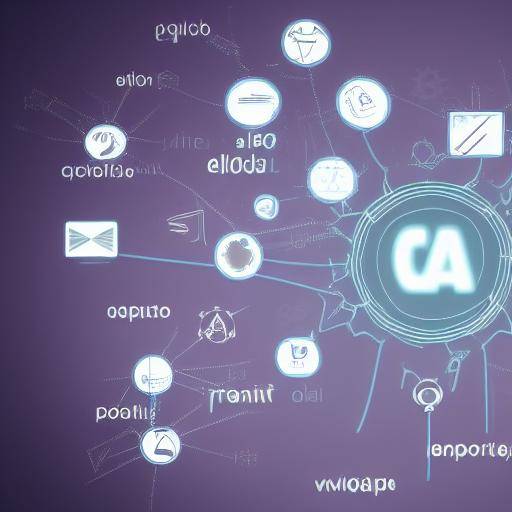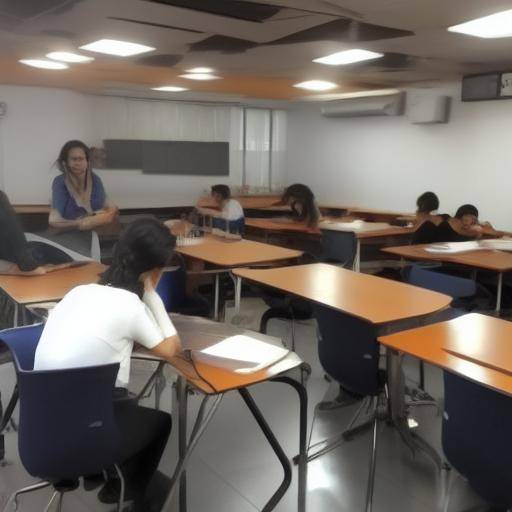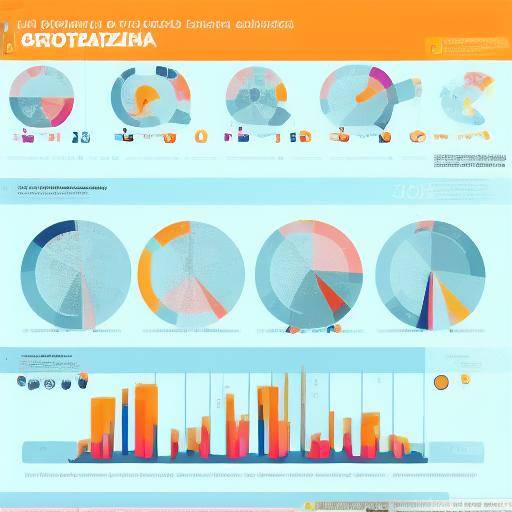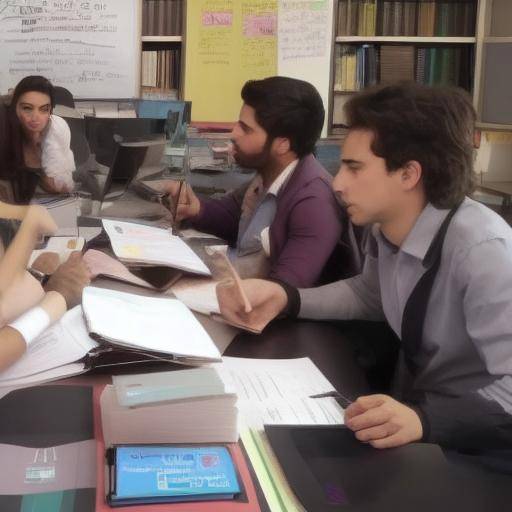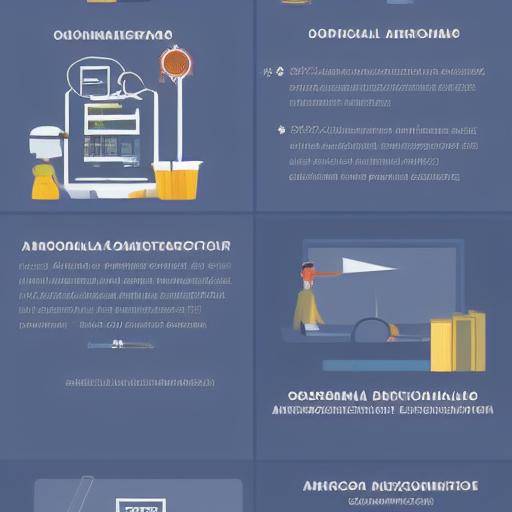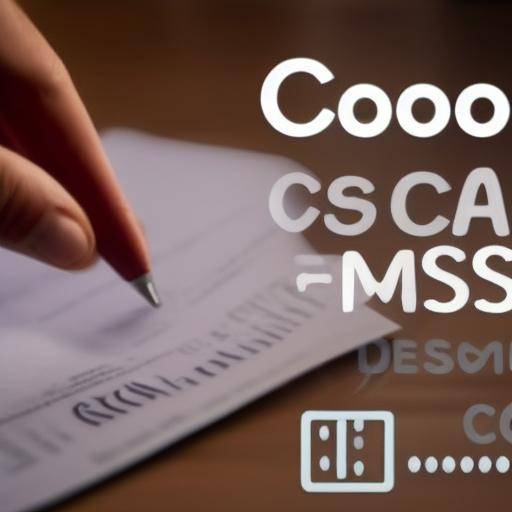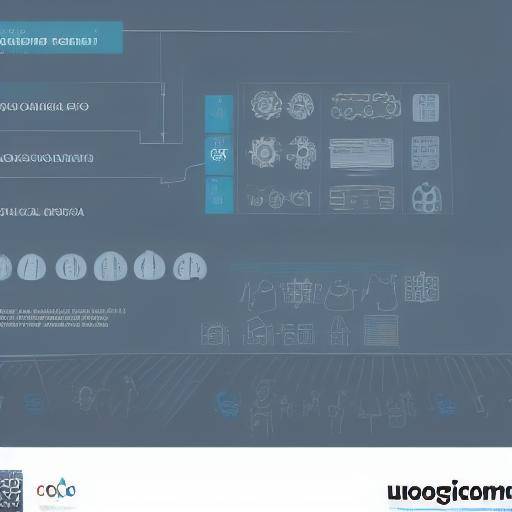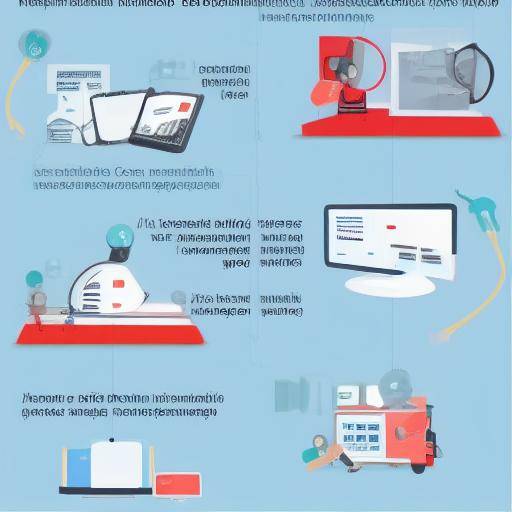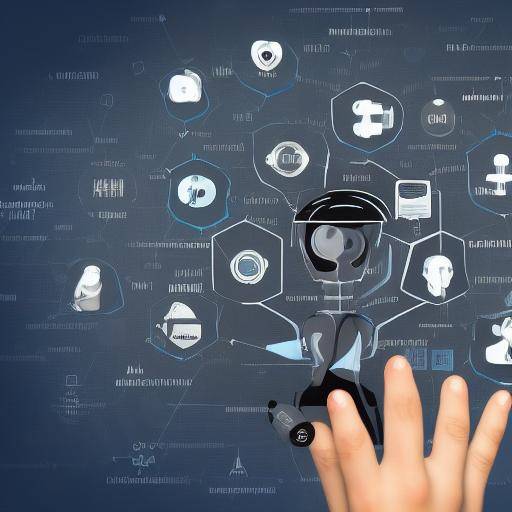
Artificial Intelligence (IA) has revolutionized a wide range of industries and sectors, and the field of education has not been an exception. The ability of the AI to collect, analyze and apply large amounts of data has paved the way for the development of personalized educational solutions that adapt to the individual needs of students. In this article, we will explore how artificial intelligence is used for personalized learning as well as its benefits, challenges and future trends. In addition, we will provide practical advice, expert insights, case studies and predictions on the future of this innovative application of AI in education.
Introduction
The successful implementation of artificial intelligence in the educational field has provided a platform for personalized learning, which is based on adapting teaching and educational content to the individual learning skills, interests and rhythms of students. This has transformed the way education is provided, and has provided the opportunity to create more effective and meaningful learning experiences for students. In this article, we will explore how artificial intelligence is used to offer personalized learning as well as its implications, practical applications and future prospects.
History and Background
The use of artificial intelligence in the educational context has its roots in the technological advances of recent decades. As the ability of AI to process and understand large amounts of data has expanded, there has been a growing interest in its application in the educational field. From the first initial experiments to the current advanced custom learning solutions, the evolution of AI in education has been shocking.
In recent decades, advances in the field of artificial intelligence, especially in automatic learning and natural language processing, have paved the way for the development of highly personalized educational solutions. This has led to a significant change in the way education and learning are conceived and implemented.
Meanwhile, at a more granular level, artificial intelligence has played a crucial role in the customization of curricula, the adaptation of the difficulty of activities according to the needs of the student and the early identification of problematic areas for educational intervention.
Deep analysis
The adoption of artificial intelligence in education has led to a number of tangible benefits, but it has also raised significant challenges. Among the benefits, the ability to customize learning to meet the individual needs of students, identify learning patterns and provide instant feedback. However, it also faces challenges, such as the privacy of student data, equity in access to technology and resistance to change by some members of the educational community.
The practical application of artificial intelligence in personalized learning has demonstrated its effectiveness through a series of case studies in different environments and contexts. From traditional classrooms to online learning environments, artificial intelligence has proven to be a powerful tool to adapt teaching and evaluation to the specific needs of students.
In terms of current trends, artificial intelligence in education is experiencing rapid progress, with a growing emphasis on mass customization, intelligent mentoring and predictive analysis to identify and address the individual needs of students.
Comprehensive review
The application of artificial intelligence for personalized learning encompasses a wide range of fields ranging from the identification of learning patterns to the adaptation of educational content and training evaluation. Through case studies and interviews with field experts, we can get a clearer view of the different perspectives on the impact of AI on personalized education.
The analysis has provided a deeper understanding of the advantages and challenges of the implementation of AI systems in educational settings. The ability to adapt educational content and strategies to meet the specific needs of each student represents a significant advance in teaching and learning.
On the other hand, it is essential to consider in a critical manner the possible inconveniences related to data privacy, algorithmic bias and equity in access to technology, in order to develop ethical practices and ensure that all students benefit equally from these innovations.
Comparative analysis
Artificial intelligence and personalized learning are intrinsically intertwined, as AI provides tools and models to effectively implement custom learning. However, it is important to understand their differences and similarities to maximize their potential.
AI is the technology that allows the customization of learning through algorithms, data analysis and recommendation systems. On the other hand, personalized learning focuses on adapting teaching and educational content to the individual needs and skills of students. By understanding these distinctions, educators are better equipped to effectively use AI in the development and implementation of custom learning strategies.
Practical Tips and Accessible Advice
By considering the implementation of artificial intelligence for personalized learning, it is essential to keep in mind some practical tips that can maximize their effectiveness. Some key recommendations include careful implementation planning, multidisciplinary collaboration to ensure effective integration, focus on ethics and equity, and constant evaluation and feedback to continually improve customized learning solutions.
Conclusions and FAQs
Conclusions
In short, artificial intelligence offers significant potential to transform learning through customization. By adapting educational approaches to the individual needs of students, AI-based solutions have the power to dramatically improve the effectiveness and relevance of the educational process. However, it is crucial to address emerging challenges to ensure that the implementation of AI in educational settings is ethical, equitable and effective.
Frequently asked questions
1. How can artificial intelligence improve personalized learning?
Artificial intelligence can improve personalized learning by analyzing students' learning patterns, adapting the educational content to their individual needs and providing instant feedback on their progress, allowing a more effective and meaningful learning experience.
2. What are the main challenges in the implementation of artificial intelligence for personalized learning?
Some of the main challenges include the privacy of student data, algorithmic bias in AI systems, equity in access to technology and resistance to change by some members of the educational community.
3. How can educators make the most of artificial intelligence for personalized learning?
Educators can make the most of artificial intelligence for personalized learning by carefully planning implementation, working with technical experts, maintaining a focus on ethics and equity, and being open to feedback and continuous improvement.
4. What is the long-term potential impact of artificial intelligence on personalized learning?
The long-term potential impact of artificial intelligence on personalized learning is the creation of highly adapted and effective educational experiences, the development of proactive teaching models and the early identification and approach of individual student needs.
5. How can artificial intelligence help students with different learning styles?
Artificial intelligence can help students with different learning styles by customizing educational content and teaching strategies to adapt to their unique learning preferences and rhythms, allowing them to maximize their learning potential individually.
6. What are the areas of education that benefit more from the application of artificial intelligence for personalized learning?
The areas of education that benefit more from the application of artificial intelligence for personalized learning include online education, distance education, corporate training and special education, where individual learning needs and styles require highly adaptive approaches.
In short, artificial intelligence is transforming the way in which personalized education is conceived, providing unprecedented opportunities to adapt teaching and educational content to the individual needs of students. As AI continues to evolve, it is essential to proactively address emerging challenges to ensure that their implementation is ethical, equitable and effective. With a solid understanding of how to use artificial intelligence for personalized learning and the ongoing commitment to promoting innovative and ethical practices, the potential of AI to improve education is truly unlimited.


